Abstract
1. The patterns of incorporation of radioactivity from d-[6-3H]-, d-[1-14C]-, d-[U-14C]- and d-[6-14C]-glucose and [U-14C]myoinositol into the neutral sugars and uronic acids of the polysaccharides synthesized in different regions of the root-tip of maize were determined. 2. The root-cap tissue synthesized a slime in which a polysaccharide that contained a high proportion of fucose (32%) and galactose (21%) was found. This polysaccharide is synthesized only by the root-cap cells, and very little polysaccharide containing fucose is synthesized in adjacent tissues. Part of the meristematic tissue of the root is surrounded by the cap cells. A section of the root that contains both these tissues can be analysed, and the polysaccharide synthesized by the meristematic region can be obtained since the contribution of the root-cap cells can be found by the amount of fucose formed. 3. It was shown that there is very little difference in the polysaccharide synthesis of the meristematic region from that of the cells immediately behind it. In the more mature cells, however, the amount of xylose synthesized relative to that of arabinose is increased, and the proportion of xylose and arabinose formed in the matrix polysaccharides is increased whereas that of galactose is decreased. 4. The effect of 2,4-dichlorophenoxyacetic acid (2,4-D) on polysaccharide synthesis was to bring about a decrease in the relative amount of galactose synthesized in the matrix polysaccharides of cells immediately adjacent to the meristematic region and also in the more mature tissue. The growth factor also increased the amount of xylose synthesized relative to that of arabinose in the more mature tissue. These metabolic effects were related to a very obvious change in the morphological appearance of the root-tips. 5. Radioactivity from [U-14C]myoinositol was incorporated mainly into xylose, arabinose and galacturonic acid rather than into the hexoses, although small amounts of these sugars were formed.
Full text
PDF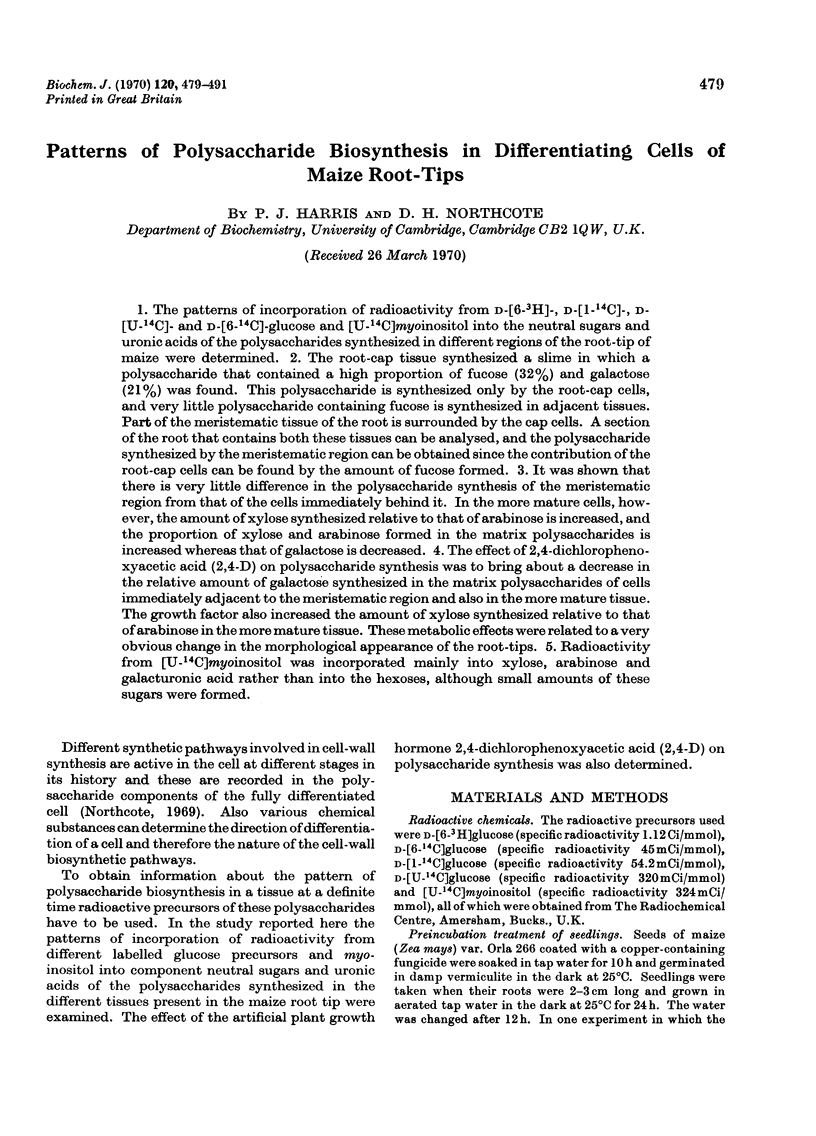
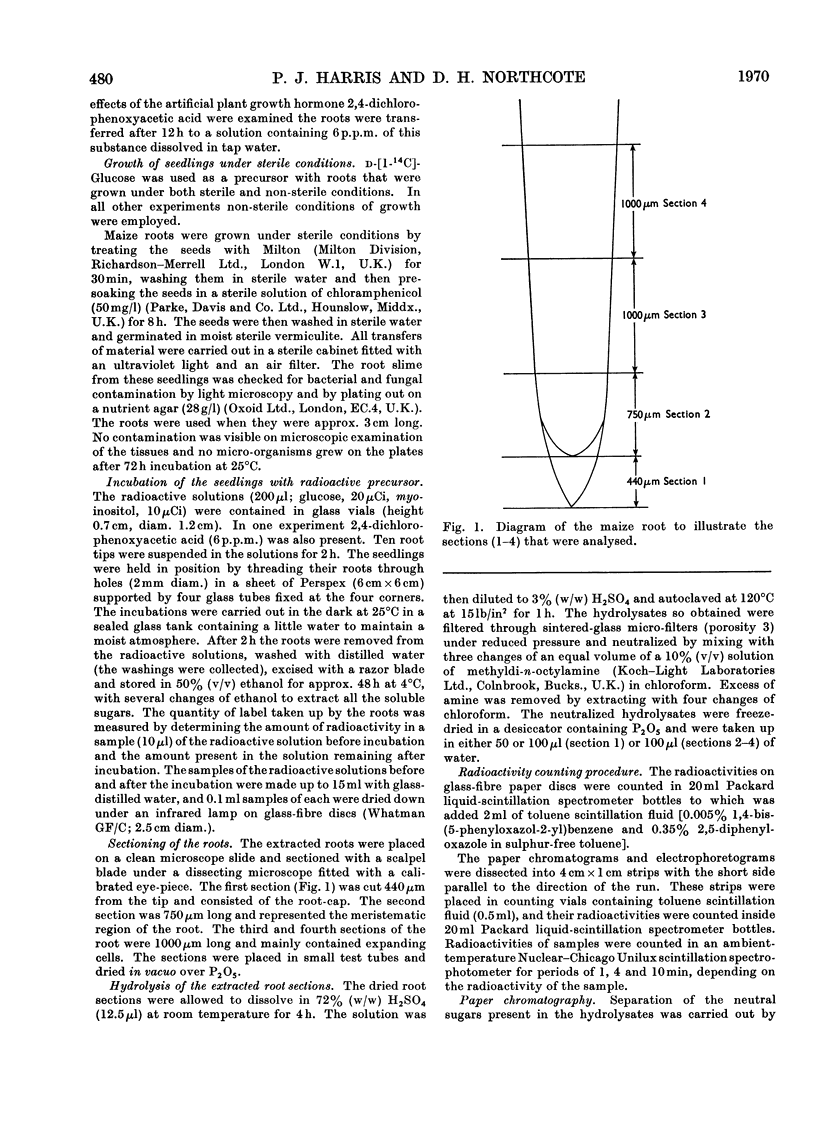
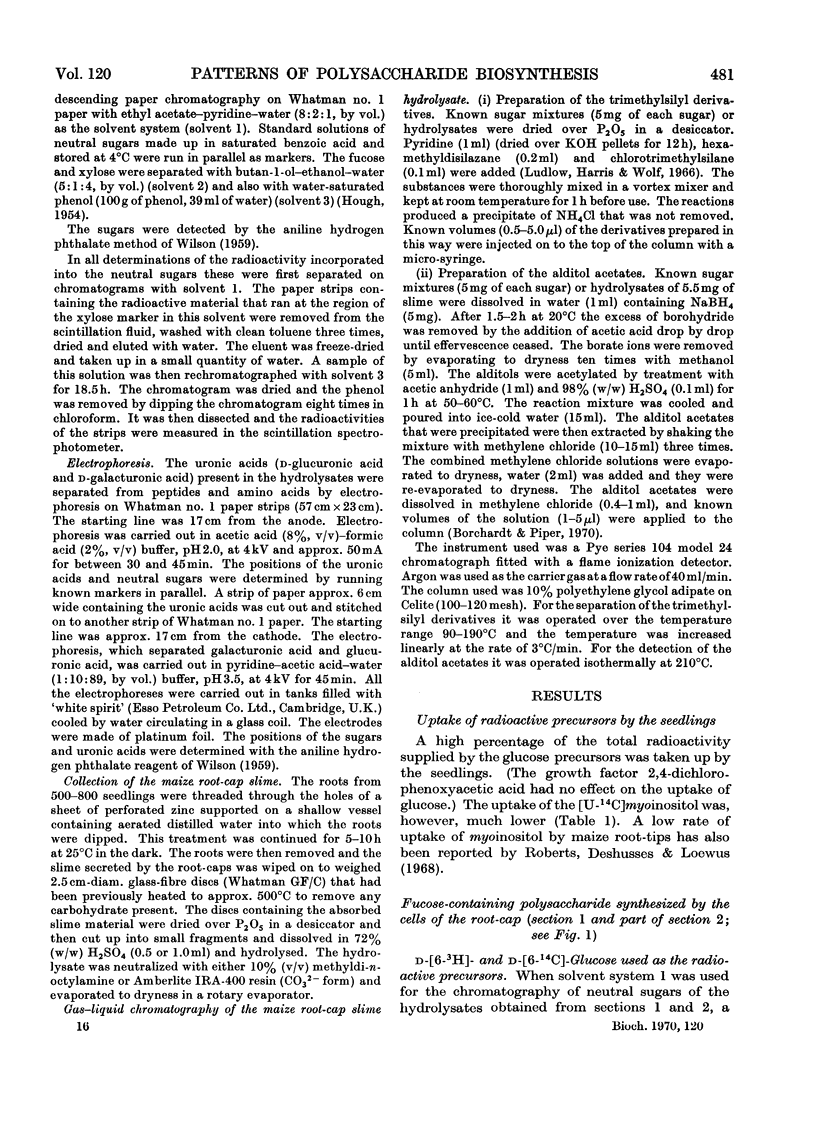
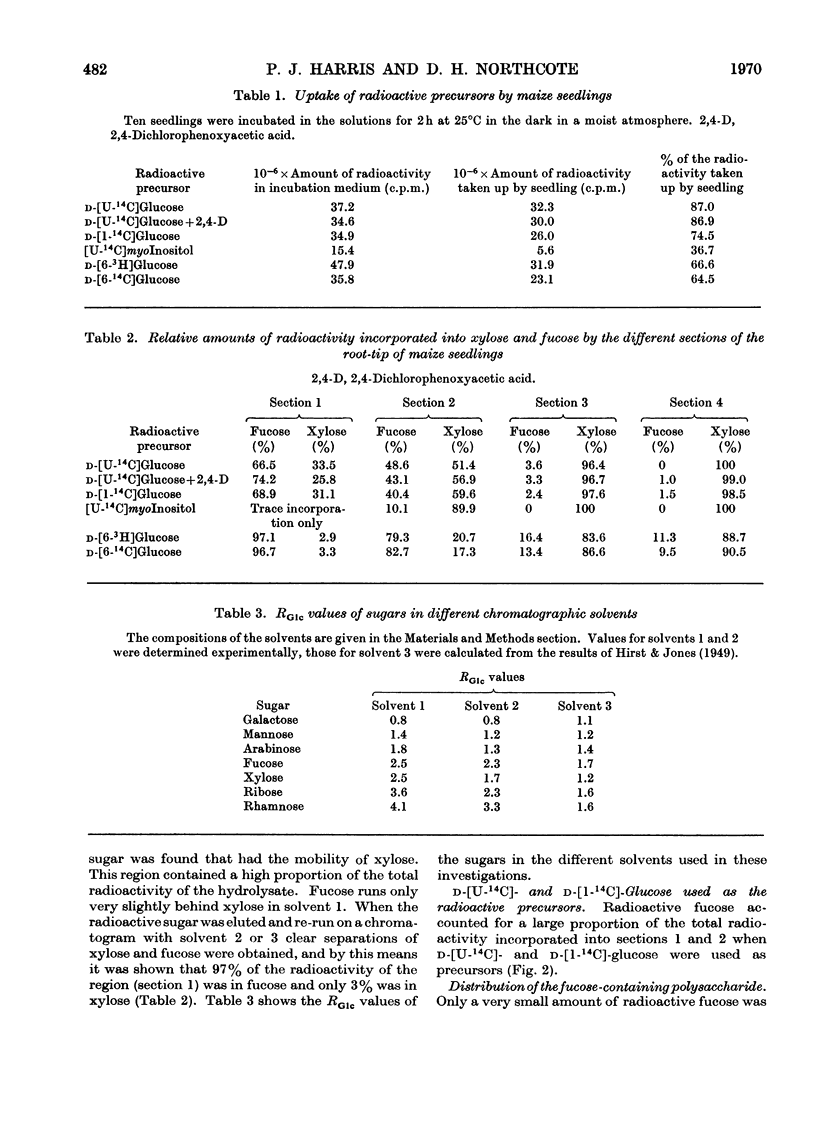
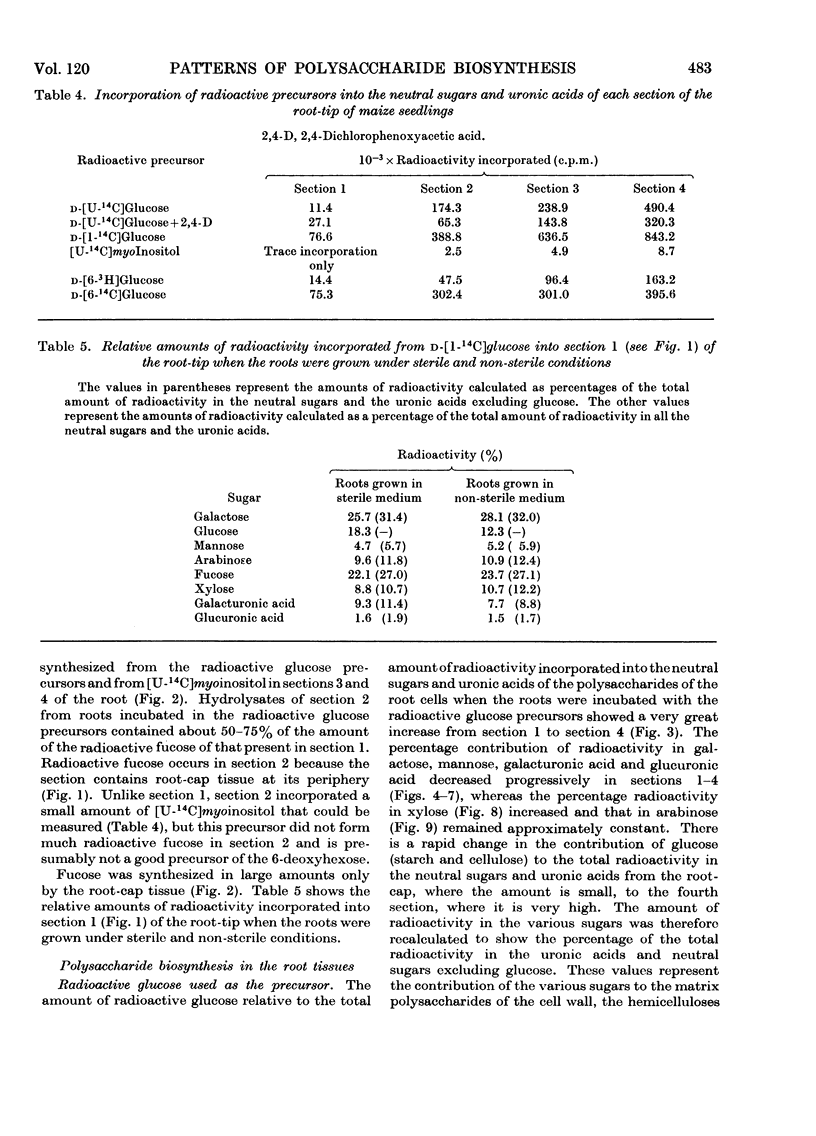
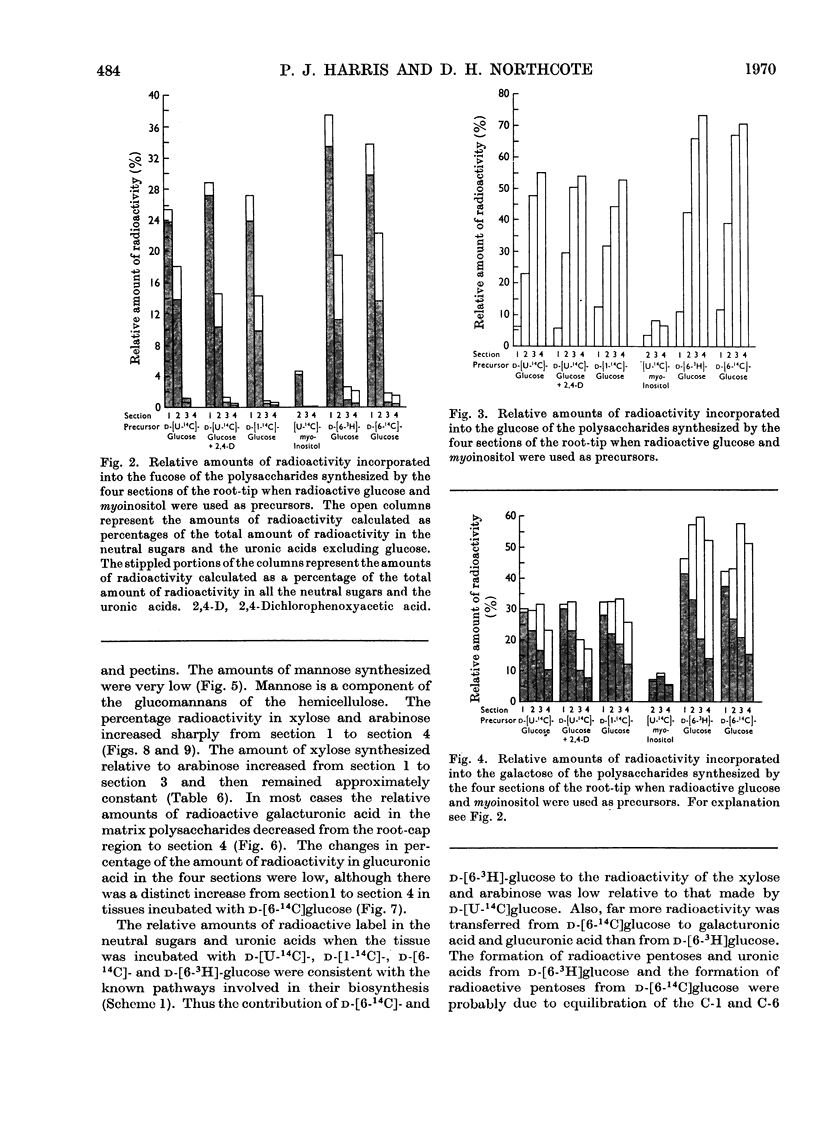
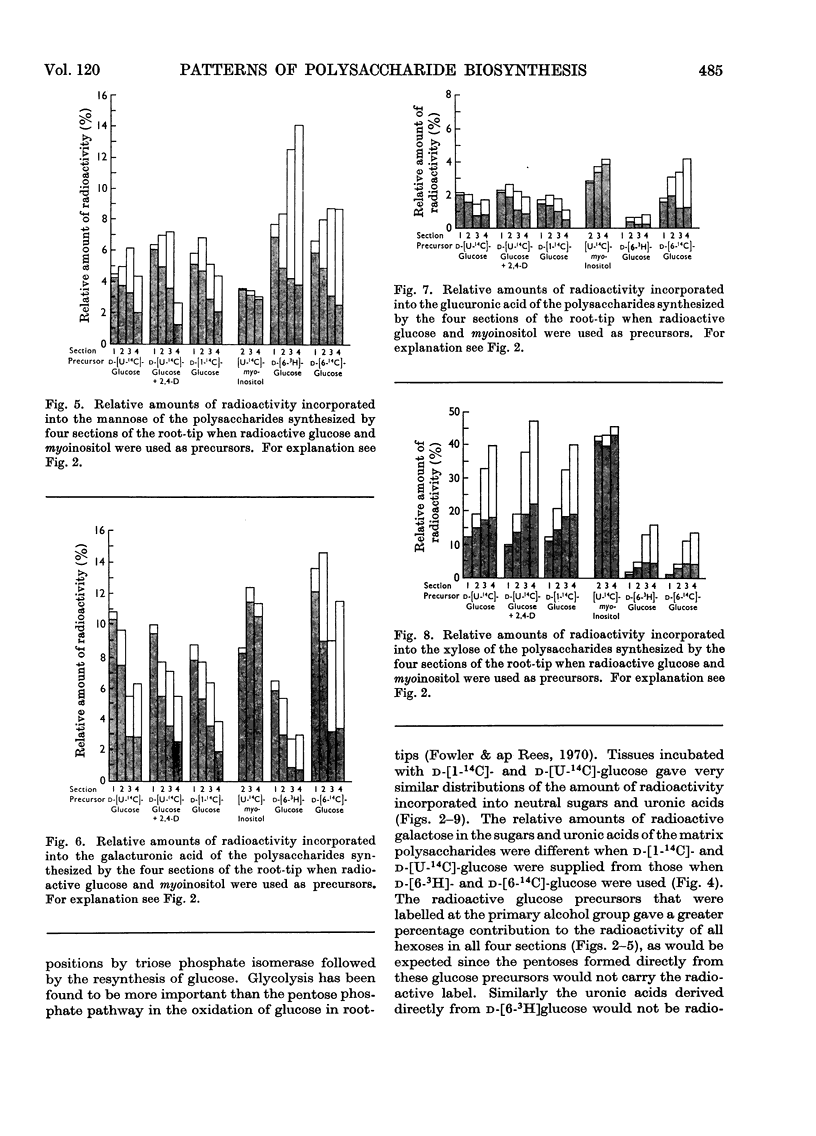
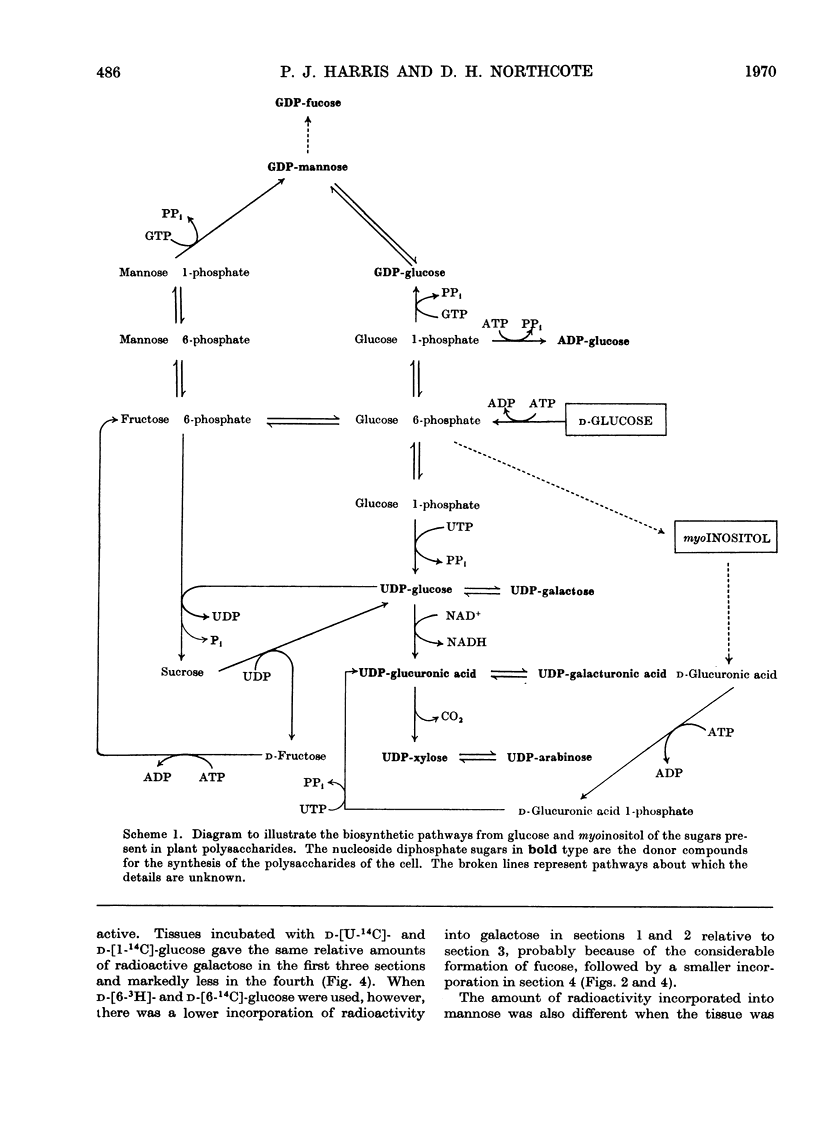
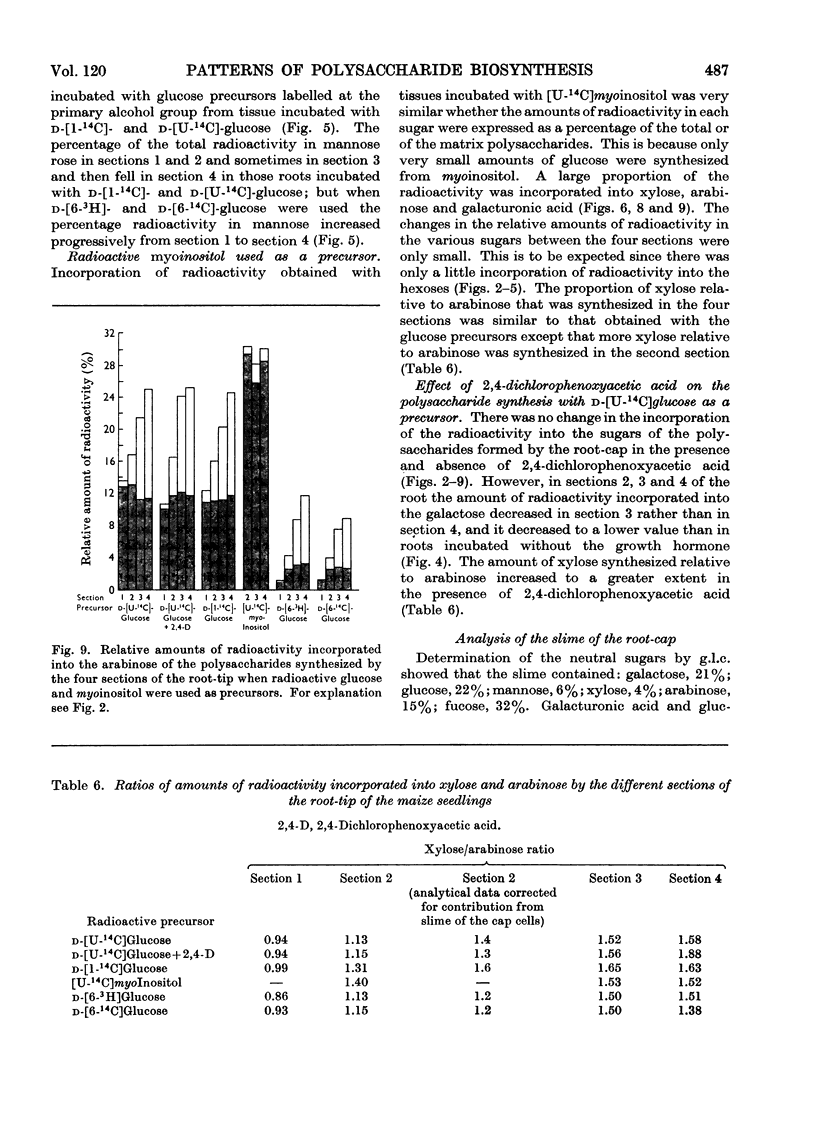
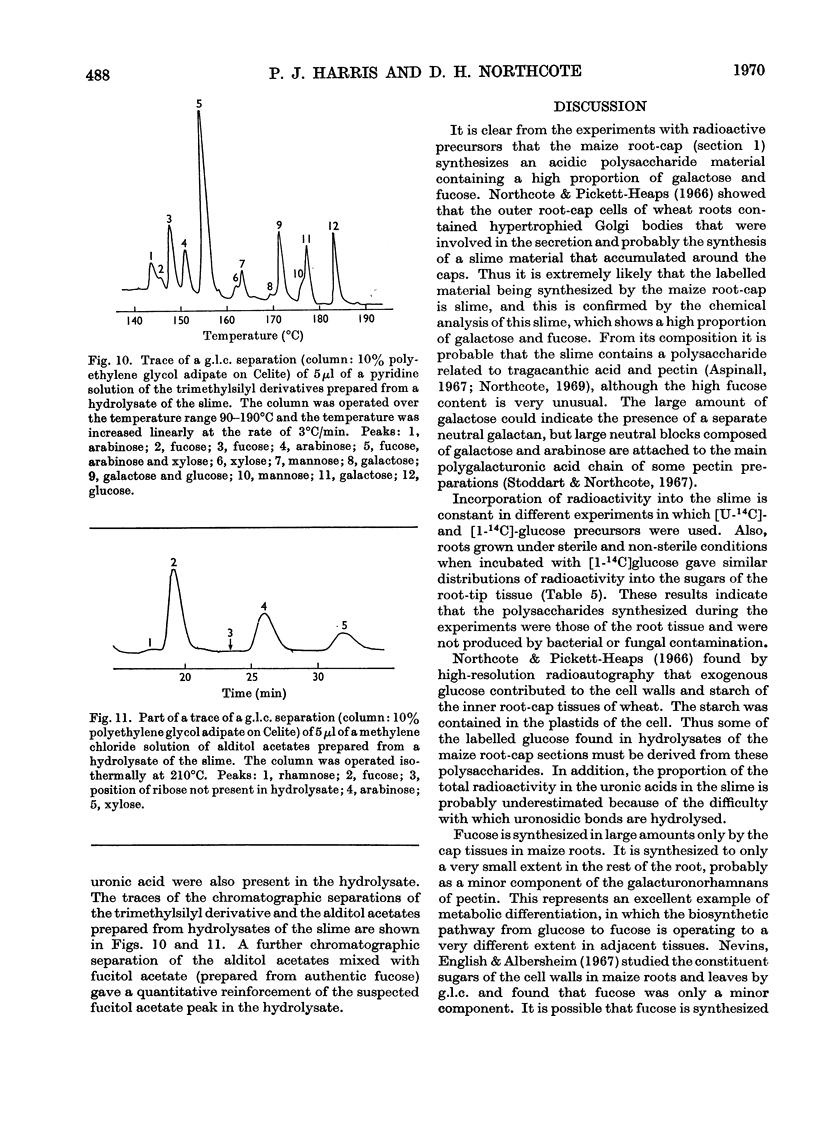
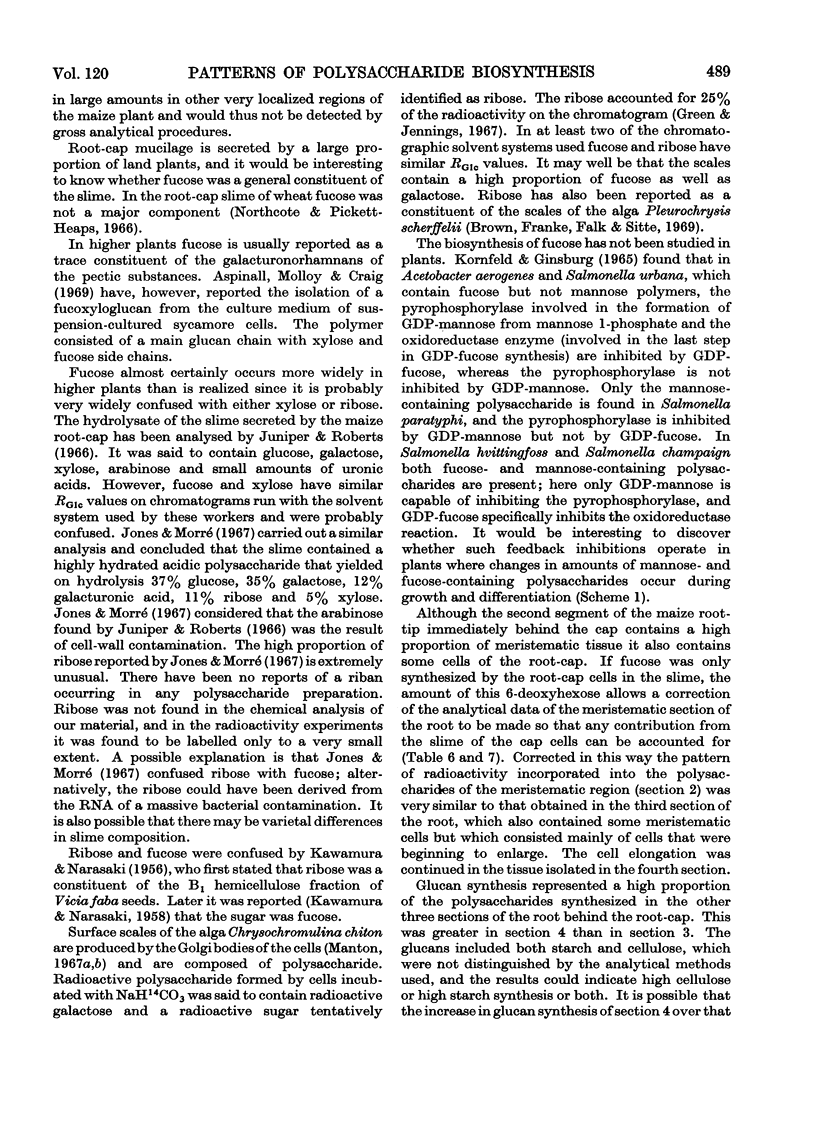
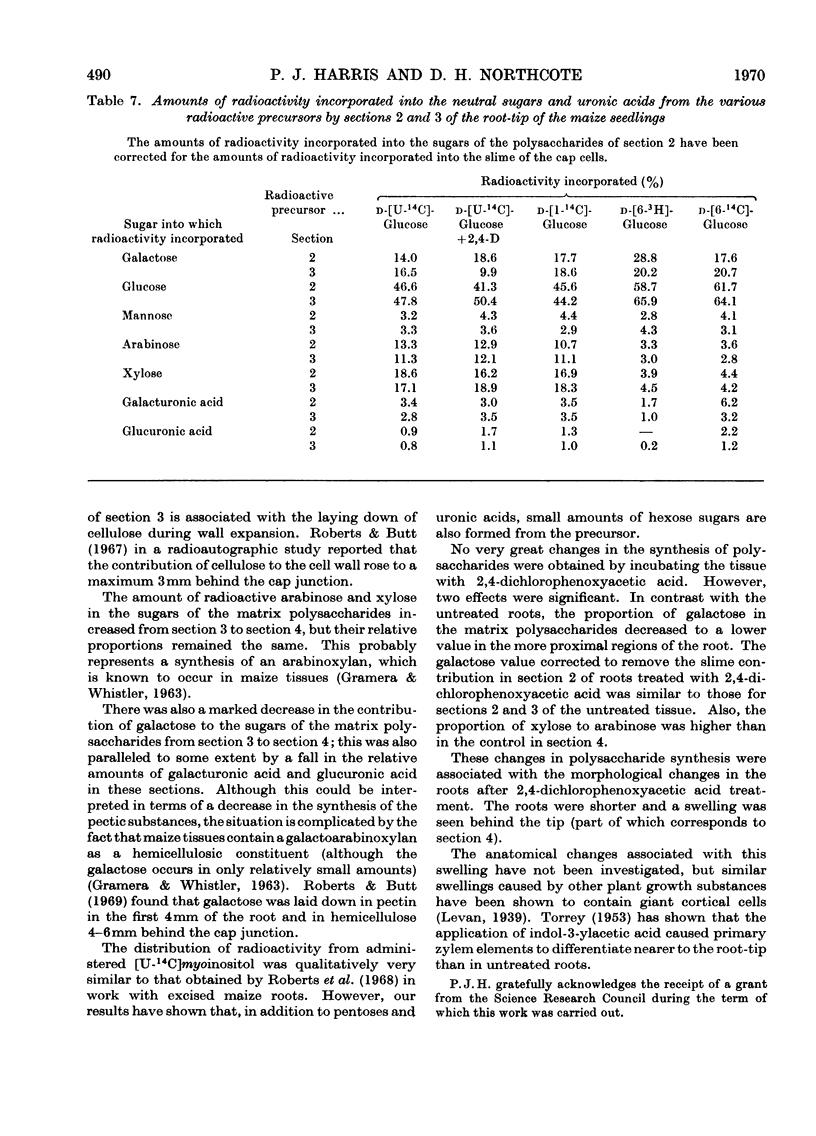
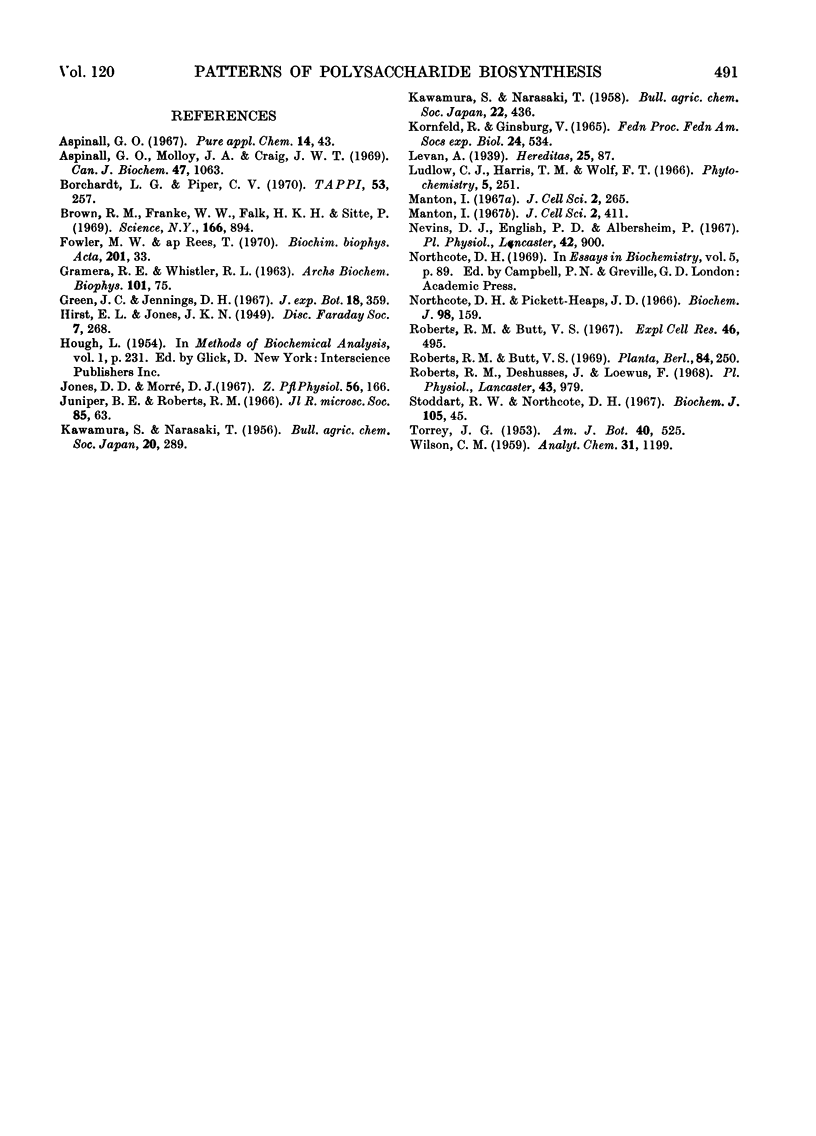
Selected References
These references are in PubMed. This may not be the complete list of references from this article.
- Aspinall G. O., Molloy J. A., Craig J. W. Extracellular polysaccharides from suspension-cultured sycamore cells. Can J Biochem. 1969 Nov;47(11):1063–1070. doi: 10.1139/o69-170. [DOI] [PubMed] [Google Scholar]
- Aspinall G. O. The exudate gums and their structural relationship to other groups of plant polysaccharides. Pure Appl Chem. 1967;14(1):43–55. doi: 10.1351/pac196714010043. [DOI] [PubMed] [Google Scholar]
- Brown R. M., Jr, Franke W. W., Kleinig H., Falk H., Sitte P. Cellulosic wall component produced by the golgi apparatus of Pleurochrysis scherffelii. Science. 1969 Nov 14;166(3907):894–896. doi: 10.1126/science.166.3907.894. [DOI] [PubMed] [Google Scholar]
- Manton I. Further observations on scale formation in Chrysochromulina chiton. J Cell Sci. 1967 Sep;2(3):411–418. doi: 10.1242/jcs.2.3.411. [DOI] [PubMed] [Google Scholar]
- Manton I. Further observations on the fine structure of Chrysochromulina chiton with special reference to the haptonema, 'peculiar' golgi structure and scale production. J Cell Sci. 1967 Jun;2(2):265–272. doi: 10.1242/jcs.2.2.265. [DOI] [PubMed] [Google Scholar]
- Nevins D. J., English P. D., Albersheim P. The specific nature of plant cell wall polysaccharides. Plant Physiol. 1967 Jul;42(7):900–906. doi: 10.1104/pp.42.7.900. [DOI] [PMC free article] [PubMed] [Google Scholar]
- Northcote D. H., Pickett-Heaps J. D. A function of the Golgi apparatus in polysaccharide synthesis and transport in the root-cap cells of wheat. Biochem J. 1966 Jan;98(1):159–167. doi: 10.1042/bj0980159. [DOI] [PMC free article] [PubMed] [Google Scholar]
- Roberts R. M., Butt V. S. Patterns of cellulose synthesis in maize root-tips. A chemical and autoradiographic study. Exp Cell Res. 1967 Jun;46(3):495–510. doi: 10.1016/0014-4827(67)90376-x. [DOI] [PubMed] [Google Scholar]
- Roberts R. M., Deshusses J., Loewus F. Inositol Metabolism in Plants. V. Conversion of Myo-inositol to Uronic Acid and Pentose Units of Acidic Polysaccharides in Root-tips of Zea mays. Plant Physiol. 1968 Jun;43(6):979–989. doi: 10.1104/pp.43.6.979. [DOI] [PMC free article] [PubMed] [Google Scholar]
- Stoddart R. W., Northcote D. H. Metabolic relationships of the isolated fractions of the pectic substances of actively growing sycamore cells. Biochem J. 1967 Oct;105(1):45–59. doi: 10.1042/bj1050045. [DOI] [PMC free article] [PubMed] [Google Scholar]


